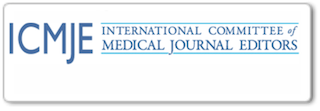Increased Emotional Spiritual Quotient through Reflective Learning in Clinical Nursing Students at Syarif Hidayatullah State Islamic University
Abstract
Reflection is carried out in the realm of practice, the role of professionals, such as teaching and education. Reflection is also used in the health sector, especially nursing practice. Reflection is important in clinical learning for professional and students' intellectual development. The nursing program on nurses learning with the Competency-Based Curriculum at Syarif Hidayatullah State Islamic University, Jakarta has only begun from 12th generation which is still running in hospitals with scientific and Islamic integration. The purpose and significance of this research is to determine the effect of Reflection on ESQ clinical nursing students of Syarif Hidayatullah State Islamic University, Jakarta. The research method used was a pre-experimental design. Respondents were 36 nursing students, with purposive sampling. Intervention used Gibbs’s reflective learning step and ESQ questionnaire The analysis data used t dependent test. the results showed that there were significant differences in the ESQ of Nurse students before and after they were given reflective learning. Self-reflection learning as part of clinical nurse learning is able to develop student ESQ and is in line with the integration of science and Islam at UIN Syarif Hidayatullah. It is needed the sustainable development and monitoring of learning with reflective learning in nurses study programs for nurses students so that ESQ as a student soft skill can be optimally achieved to improve the quality of nurses' education in Syarif Hidayatullah State Islamic University, Jakarta.
Keywords
References
Adeani, Febriani, & Syafryudin. (2020). Using Gibbs’ Reflective Cycle in Making Reflections of Literary Analysis. Indonesian EFL Journal, 6(2), 139-148.
Anantasari, M., L. (2012). Model Refelksi Graham Gibbs untuk Mengembangkan Religiusitas. Jurnal Teologi, 01(2), 195–207.
Bulman, C., Lathlean, J., & Gobbi, M. (2012). The Concept of Reflection In Nursing. Qualitative Findings on Student and Teacher Perspectives. Nurse Education Today, (32), e18–e13.
Caldwell, L., & Grobbel, G, C. (2013). The Importance of Reflective Learning in Nursing. International Journal of Caring Sciences, 6(3), 319–326.
Gorji, A. H., Darabina, M., & M, R. (2017). Emotional and Spiritual Intelligence Among Medical Students in Iran. J Psychiatry Behav Sci, 11(4), 1-5.
Hanafi, R. (2010). Spiritual Intelligence, Emotional Intelligence, and Auditor’s Perfomance. JAAI, 14(01), 29–40.
Haryati, T. D. (2013). Kematangan Emosi, Religiusitas dan Perilaku Prososial Perawat Di Rumah Sakit. Jurnal Psikologi Indonesia, 02(02), 162–172.
Ip, W. Y., Lui, M. H., Chien, W. T., Lee, I. F., Lam, L. W., & Lee, D. . (2012). Promoting Self-Reflection In Clinical Learning Among Chinese Nursing Undergraduates in Hong Kong. Contemporary Nursing, 41(2), 253–262.
Leonard. (2017). Emotional displays: Nurse educators engaging and reflecting on their own emotional displays in preparing nursing students for the emotional complexities of nursing practice. Journal of Nursing, 4(11), 121–131.
Momennasab, M., Shadfard, Jaberi, A., Najaf, S. S., & Hosseini, F. N. (2019). The Effect of Group Reflection on Nursing Students’ Spiritual Well-being and Attitude Toward Spiritual Care: a randomized controlled trial. Invest. Educ, 37(1), 80-89.
Pamungkasari, E. P., Kumara, A., & Armis, Emilia, O. (2017). Pengaruh Pembelajaran Reflektif Dan Metakognisi Terhadap Penalaran Klinik Mahasiswa Program Profesi Dokter. Jurnal Pendidikan Kedokteran Indonesia, 4(2), 65-74.
Por, J., L., B., Fitzpatrick, J., & Roberts, J. (2011). Emotional Intelligence: Its Relationship to Stress, Coping, Well-Being and Profesional Performance In Nursing Students. Nurse Education Today, (31), 855–860.
Raghubir, A. E. (2018). Emotional intelligence in professional nursing practice: A concept review using Rodgers’s evolutionary analysis approach. International Journal of Nursing Sciences, 5(2), 126–130.
Rayung, M. N., & Ambotang, A. S. (2018). The Influence of Emotional and Spiritual Intelligence on the High School Student Outcomes. Journal of Education & Social Policy, 5(1, March 2018), 211–220.
Rees, K. L. (2012). The Role Of Reflective Learnings In Enabling Final Year Nursing Students to Respond to The Distressing Emotional Challenges of Nursing Work. Nurse Education in Learning, 13(1), 48-52.
Scott, A. (2013). Critical Reflection on Learning Development Don’t Fix – Facilitate: The Role of Reflection in Successful Change Processes. 2013 International Learning Development Journal, 3(1), 1-6.
Sukartini, Asmoro, & Pradana. (2019). The Factors Related to The Caring Behavior of Clinical Nursing Students. Jurnal Ners, 14(1), 82-86.
Wardah, Febrina, & Dewi. (2017). Pengaruh Pengetahuan Perawat Dalam Pemenuhan Perawatan Spiritual Pasien Di Ruang Intensif. Urnal Edurance, 2(3), 436-443.
Yuniar, D., & Darmawati, I. (2017). Dukungan keluarga berhubungan dengan kecerdasan emosional remaja. Jurnal Keperawatan Komprehensif (Comprehensive Nursing Journal), 3(1), 9-17.
DOI: https://doi.org/10.17509/jpki.v7i1.30322
Refbacks
- There are currently no refbacks.
Jurnal Pendidikan Keperawatan Indonesia(JPKI) published by Indonesia University of Education. JPKI is licensed under a Creative Commons Attribution-ShareAlike 4.0 International License.
Office :
Nursing Department. FPOK UPI.
229, Dr. Setiabudhi Street. Bandung 40154
West Java , Indonesia
E-mail : jpki@upi.edu

_.png)
_.png)
_.png)











